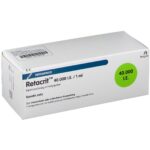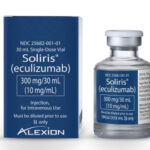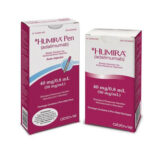Gleevec (imatinib mesylate): Uses, How it works, Side Effects, Cost

What is Gleevec?
Gleevec is a brand of imatinib mesylate a kinase inhibitor that inhibits a protein signal that causes cancer cell proliferation used to treat patients with hematological malignancies or malignant sarcomas such as Philadelphia positive chronic myeloid leukemia, chronic myeloid leukemia in blast crisis, acute lymphoblastic leukemia, aggressive systemic mastocytosis, gastrointestinal stromal tumors, and other diseases.
This medication was initially approved for use by the U.S. Food and Drug Administration (FDA) in 2001 for the treatment of chronic myelogenous leukemia (CML), a rare form of cancer that affects certain types of white blood cells. Since its initial approval, Gleevec has also been approved for use in patients with several types of gastrointestinal tumors. Currently, scientists continue to study the drug’s effectiveness not only in various cancers but also in other diseases, such as stroke.
The development of Gleevec (imatinib mesylate) has vastly improved the outcomes of patients with myelogenous leukemia. These discoveries also helped establish a new group of drugs (known as targeted therapy) that has changed the field of cancer research.
How Gleevec (imatinib mesylate) works
Targeted therapy is the result of about 100 years of research dedicated to understanding the differences between cancer cells and normal cells. To date, cancer treatment has focused primarily on killing rapidly dividing cells because one feature of cancer cells is that divide rapidly. Unfortunately, some of our normal cells divide rapidly too, causing multiple side effects.
Targeted therapy is about identifying other features of cancer cells. Scientists look for specific differences in the cancer cells and the normal cells. This information is used to create a targeted therapy to attack the cancer cells without damaging the normal cells, thus leading to fewer side effects. Each type of targeted therapy works a little bit differently but all interfere with the ability of the cancer cell to grow, divide, repair, and/or communicate with other cells.
There are different types of targeted therapies, defined in three broad categories. Some targeted therapies focus on the internal components and function of the cancer cell. The targeted therapies use small molecules that can get into the cell and disrupt the function of the cells, causing them to die. There are several types of targeted therapy that focus on the inner parts of the cells. Other targeted therapies target receptors that are on the outside of the cell. Therapies that target receptors are also known as monoclonal antibodies. Antiangiogenesis inhibitors target the blood vessels that supply oxygen to the cells, ultimately causing the cells to starve.
Research continues to identify which cancers may be best treated with targeted therapies and to identify additional targets for more types of cancer.
Imatinib mesylate belongs to the signal transduction inhibitor category of targeted therapies. It is particularly a protein-tyrosine kinase inhibitor. Gleevec (imatinib mesylate) works by inhibiting the bcr-abl tyrosine kinase, the constitutive abnormal tyrosine kinase created by the Philadelphia chromosome abnormality in chronic myeloid leukemia (CML).
How to use Gleevec
Take this medication by mouth with a meal and a full glass of water (8 ounces/240 milliliters) as directed by your doctor, usually once or twice daily. Do not crush the tablets. If you have trouble swallowing the tablets whole, you may dissolve the tablets in a glass of water or apple juice. The amount of liquid will depend on your dose. Consult your doctor or pharmacist for more detailed instructions. Stir the mixture well until the tablet(s) dissolve, and drink right away.
The dosage is based on your medical condition, response to treatment, and other medications you may be taking. Be sure to tell your doctor and pharmacist about all the products you use (including prescription drugs, nonprescription drugs, and herbal products). For children, the dosage is also based on their body size.
Do not increase your dose or use this drug more often or for longer than prescribed. Your condition will not improve any faster, and your risk of side effects will increase.
Since this drug can be absorbed through the skin and lungs and may harm an unborn baby, women who are pregnant or who may become pregnant should not handle this medication or breathe the dust from the tablets.
Side effects of Gleevec (imatinib mesylate)
Important things to remember about the side effects of Gleevec (imatinib mesylate):
• Most people do not experience all of the side effects listed.
• Side effects are often predictable in terms of their onset and duration.
• Side effects are almost always reversible and will go away after treatment is complete.
• There are many options to help minimize or prevent side effects.
• There is no relationship between the presence or severity of side effects and the effectiveness of the medication.
• The side effects of Gleevec (imatinib mesylate) and their severity depend on how much of the drug is given. In other words, high doses may produce more severe side effects.
The following side effects are common (occurring in greater than 30%) for patients taking Gleevec (imatinib mesylate):
• Low blood counts. Your white and red blood cells and platelets may temporarily decrease. This can put you at increased risk for infection, anemia, and/or bleeding.
• Nausea and vomiting
• Edema (swelling of the face, feet, hands)
• Muscle cramps and bone pain
• Diarrhea
• Hemorrhage (see bleeding problems)
• Skin rash (see skin reactions)
• Fever
These side effects are less common side effects (occurring in about 10-29%) of patients receiving Gleevec (imatinib mesylate):
• Headache
• Fatigue
• Joint pain
• Indigestion (see heartburn)
• Abdominal pain
• Cough
• Shortness of breath
• Poor appetite
• Constipation
• Night sweats (see skin reactions)
• Nose bleeds (see bleeding problems)
• Weakness
• Your fertility, meaning your ability to conceive or father a child, may be affected by Gleevec (imatinib mesylate). Please discuss this issue with your health care provider.
A rare, but potentially serious side effect of Gleevec (imatinib mesylate) is liver toxicity. There may be elevations in transaminase, bilirubin, and lactate dehydrogenase.
Not all side effects are listed above. Some that are rare (occurring in less than 10% of patients) are not listed here. However, you should always inform your health care provider if you experience any unusual symptoms.
When to contact your doctor or health care provider:
Contact your health care provider immediately, day or night, if you should experience any of the following symptoms:
• Fever of 100.4° F (38° C) or higher, chills (possible signs of infection)
• Shortness of breath, difficulty breathing
• Significant bleeding from nose, mouth, vagina, rectum that does not stop within 15 minutes.
The following symptoms require medical attention but are not an emergency. Contact your health care provider within 24 hours of noticing any of the following:
• Nausea (interferes with the ability to eat and unrelieved with prescribed medication).
• Vomiting (vomiting more than 4-5 times in a 24 hour period).Diarrhea (4-6 episodes in a 24-hour period).
• Unusual bleeding or bruising
• Black or tarry stools, or blood in your stools
• Blood in the urine
• Extreme fatigue (unable to carry on self-care activities)
• Swelling, redness, and/or pain in one leg or arm and not the other
• Yellowing of the skin or eyes
• Swelling of the feet or ankles. Sudden weight gain.
Always inform your health care provider if you experience any unusual symptoms.
Gleevec may cause other side effects. Call your doctor if you have any unusual problems while taking this medication.
If you experience a serious side effect, you or your doctor may send a report to the Food and Drug Administration’s (FDA) MedWatch Adverse Event Reporting program online (http://www.fda.gov/Safety/MedWatch) or by phone (1-800-332-1088).
Price of Gleevec (imatinib mesylate)
The cost for the most common version of imatinib oral tablet 400 mg is around $121 for a supply of 30 tablets, depending on the pharmacy you visit. Prices are for cash-paying customers.





